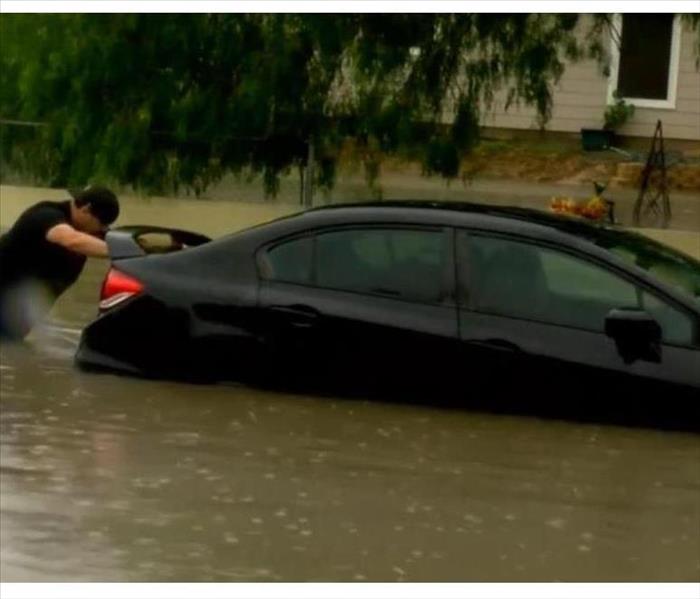2019 Hurricane Season TOP 20 PREP TIPS (pt. 2)
6/7/2019 (Permalink)
Loose items in yard:
The reason for boarding up windows to protect your home from any flying debris that appears during storm time. We can further minimize damage to our property and others by taking the time to pick up and store any items that we may have laying out in the yard. Decorative ornaments, lawn statues or figurines and children’s or pet’s toys. Also be sure to wrap up any water hoses or pathway lighting. Taking these measures can prevent further damage to your property.
Insurance coverage:
Probably one of the most important things we can do to protect our properties is making sure that they’re properly covered with the correct insurance policies. A common misconception is that having Home-Owners Insurance alone is enough to cover your damages. However, in the event of a storm where heavy flooding is concerned, you will specifically need flood insurance. A separate policy from that of your home-owners insurance. There are plenty of great companies. Be sure to communicate your needs to your local agent and find what works best for you and your family.
Now, how relevant is this to our local community??? The RGV is not a traditional Mountain Valley. We are a River Valley. More than that… we actually sit on a flood plain. This is due to the fact that in older times, farmers didn’t have the irrigation systems we do now, so they would literally flood the fields with resacas fed from the Rio Grande and the Arroyos. Many of these fields no longer exist, and are now the subdivided neighborhoods we live in. So, yeah… we NEED flood insurance.
Evac route(s):
For us here in the RGV, travel is pretty simple. You go one way, you get to Upper Valley/McAllen area. You go the other way to head to the Island. During storm time though, that same simplicity makes things a little difficult. Because everyone will be evacuating at the same time, and there are basically only 2 ways to go, traffic can become an issue. Be sure to plan back-up routes just in case your first option is not safe or become too congested.
Make this a fun mini road trip for you and the family. Or if you just need a little get-away drive. Drive through different parts of town and get to know some of the outlying areas.
Loss of power/water:
If evacuation is not necessary and you and your family plan to ride it out at home, be ready to lose power and running water. In a situation like this it’s a good idea to store and gather as much water as you can. While still possible, prefill bathtubs and sinks for flushing toilets, cleaning and laundry. My neighbor has his rain gutters collecting water in large drums during storm time.
As far as power is concerned, you can only buy so many batteries. But you can store as much as you need to in small rechargeable power packs. These come in all kinds of sizes and are especially convenient when you need to recharge your cell phone, but they may also be able to power other small tools such as flashlights and small radios. Be sure to have these charging the moment you know a storm is heading our way and test them frequently throughout the year to ensure they function properly.
Turn off gas/ unplug small appliances:
In the event of a power surge, many of the electrical components in our appliances can be damaged. It’s important to use surge protectors and if need be, even disconnect the power to anything you may feel could be at risk. The last thing you’d want is to have power come back on only to realize that your items no longer work.
It is important to note, if you evacuate your home or business, DO NOT turn off your gas supply at the main meter. Only emergency or utility personnel should turn the valve on or off. You CAN turn off the gas for individual appliances at the appliance valve near each unit if you choose to do so. Most codes now require an appliance valve within six feet of each appliance.
This completes Part 2 of our Hurricane Preparation list. Stay tuned for Pt. 3 & 4!






 24/7 Emergency Service
24/7 Emergency Service
